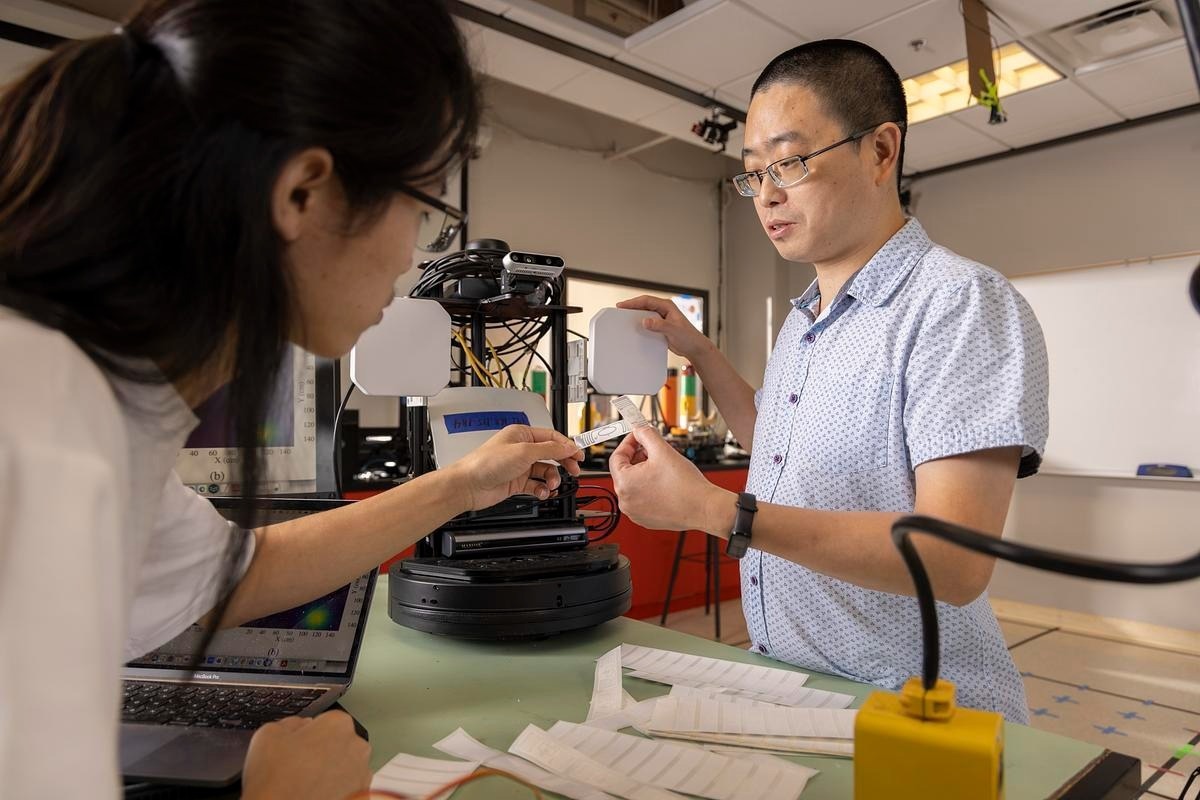Sometimes, great ideas start from simple beginnings. Jian Zhang, an Assistant Professor at Kennesaw State University, were inspired to research joint movement when he heard about his friend's toddler struggling with sleep problems.

Image Credit: Darnell Wilburn
Zhang, who has experience in robotic systems and is curious about how Radio Frequency Identification (RFID) technology can make lives better, wondered if he could use artificial intelligence and clothing security tags to help address this issue.
Thanks to a $180,000 grant from the National Science Foundation (NSF), his three-year project will focus on researching sleep and sleep disorders. To do this, they will utilize RFID tags placed inside clothing to track body movements. These RFID tags have individual identities to identify each joint in the body. The collected data will be sorted and analyzed using artificial intelligence.
Think of the tag you see on a T-shirt you purchase or a tag on your luggage when you fly. It’s not intrusive, but it gives you information.
Jian Zhang, Assistant Professor, Kennesaw State University
Jian Zhang, who teaches at the Southern Polytechnic College of Engineering and Engineering Technology (SPCEET), will partner with Auburn University Professor Shiwen Mao on this project.
Mao’s research has received an extra $240,000 in funding from the NSF. In addition to studying sleep and sleep disorders, the project aims to explore ways to prevent health issues in the elderly, especially those at a high risk of falling, by identifying abnormal body movements.
We aren’t collecting any private information. The person’s age or gender isn’t known. But it will collect information about your joints. Plus, the tags allow us to capture enough information without disrupting the sleep. You can sleep normally.
Jian Zhang, Assistant Professor, Kennesaw State University
Zhang's research involves collecting data on joint movements, which will be used in future studies to explore the link between these movements and various diseases in the body.
We hope the success of this project can enable us to develop a new tool for sleep disease diagnosis and monitoring persons needing preventative care. And it was all inspired by my friend and his son.
Jian Zhang, Assistant Professor, Kennesaw State University